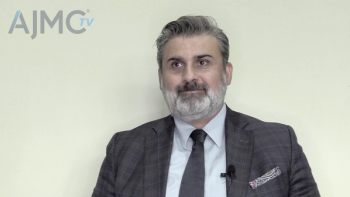
Dr Stephen Schuster: Unique CAR T Toxicities Require Provider Education
Since patients who receive CAR T-cell therapy experience unique adverse events, there will need to be education for providers who care for these patients, explained Stephen Schuster, MD, of the Perelman School of Medicine.
Since patients who receive CAR T-cell therapy experience unique adverse events, there will need to be education for providers who care for these patients, explained Stephen Schuster, MD, of the Perelman School of Medicine.
Transcript
What is known about the adverse events of CAR T treatments and how they are handled?
There are some adverse events of special interest, because they’re not seen with chemotherapy or with the currently available therapies that we use. They are cytokine release syndrome and neurotoxic syndrome.
So, the cytokine release syndrome is akin to what you would expect in a patient if they had an overwhelming infection or severe sepsis: low/high fever, low blood pressure, sometimes capillary leak syndrome—meaning egress of fluid into lungs and tissues, which leads to respiratory failure and kidney failure and organ failure and death, if untreated. So, one has to know how to monitor the patients for this syndrome. By and large, severe cytokine release syndrome that is life threatening is fortunately less frequent than all grades. And, it varies from T-cell product to T-cell product, but we’ve learned that it can be treated with the IL-6 blocking antibody, tocilizumab, successfully in almost all cases. So, most of the recent trials have not shown any deaths from cytokine release syndrome, now that we recognize the syndrome as a consequence of T-cell therapy and we’ve learned how to manage it.
The neurotoxic events we don’t know really how to predict. We don’t know how to manage them, because we don’t understand them. Although, the good thing is, they’re generally reversible within a week without any treatment; although, frequently patients are given some steroids to try to blunt T-cell activity, presuming that’s what’s mediating the syndrome. And it can vary from just a mild confusion, word-finding difficulty, to coma. So, there’s a spectrum of severity. Fortunately, most of the events are not severe. Very rare that someone has a mortality to central nervous system side effects.
They’re unique toxicities that physicians and providers will have to be educated about when they begin to use this kind of therapy or manage patients that have had this kind of therapy.
Newsletter
Stay ahead of policy, cost, and value—subscribe to AJMC for expert insights at the intersection of clinical care and health economics.










